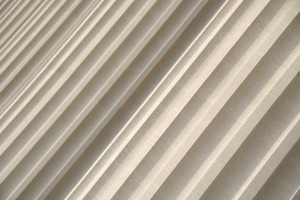The EAT has held that a document did not become privileged retrospectively when an amended version was disclosed
In University of Dundee v Chakraborty, the Employment Appeal Tribunal (EAT) has held that a grievance investigation report did not retrospectively attract legal advice privilege when a later version of the report, which had been amended by the employer’s solicitors, was disclosed during tribunal proceedings.
Legal Background
Legal professional privilege (LPP) is a fundamental right which protects confidential communications from disclosure. There are two types of LPP:
- Legal advice privilege, which protects communications between a lawyer and client that are made for the sole or dominant purpose of giving or receiving legal advice; and
- Litigation privilege, which protects communications between lawyers or their clients and any third party for the purpose of obtaining advice or information in connection with existing or reasonably contemplated litigation.
The Facts
In November 2021, the Claimant raised a grievance against his line manager alleging harassment, bullying, discrimination and racial abuse. An independent staff member (ND) was appointed to investigate the Claimant’s grievance. ND produced a report on her findings on 28 February 2022, by which time the Claimant had issued proceedings against the University in the Employment Tribunal. The University then instructed external legal advisers to review the report, who suggested a number of amendments which were approved by ND. The revised report was then disclosed to the Claimant and included in the bundle for the upcoming hearing. The original version of the report, however, was not disclosed.
On the first day of the evidential hearing, the Claimant applied for disclosure of the original, unamended report. The University resisted the application on the ground that the original report was protected by legal advice privilege. In particular, it argued that if the original report was disclosed then a comparison could be made between the two versions which, in turn, would enable inferences to be drawn about the legal advice that had been given. The Employment Tribunal rejected the decision and ordered the University to produce the original unamended report. The University appealed the decision.
EAT Decision
The EAT dismissed the appeal. The University had conceded that the original report was not privileged at the point it was created and the EAT agreed with that analysis.
The University’s case, however, was that the original report had retrospectively acquired legal advice privilege because advice was later given on its contents and an amended version was created and lodged as a result of that advice.
The EAT found that there was nothing in the case law to support the University’s submissions. The content of any advice given by the University’s solicitors about the original document, and any amended version of that document created for the purpose of the litigation, would plainly be privileged. However, the original unamended document was not privileged and did not retrospectively become so even though its disclosure might allow a comparison to be made between the two versions, leading to inferences to be drawn about the advice that might have been given.
Practical Considerations
Grievance and disciplinary investigations are fact finding exercises and are generally not undertaken for the purpose of obtaining legal advice. Whilst legal advice may be acquired on the investigation or the contents of any associated report, this will not retrospectively attach privilege to any initial drafts. Only the advice itself will constitute a legally privileged document, not the investigation or report which forms the basis of that advice.





































